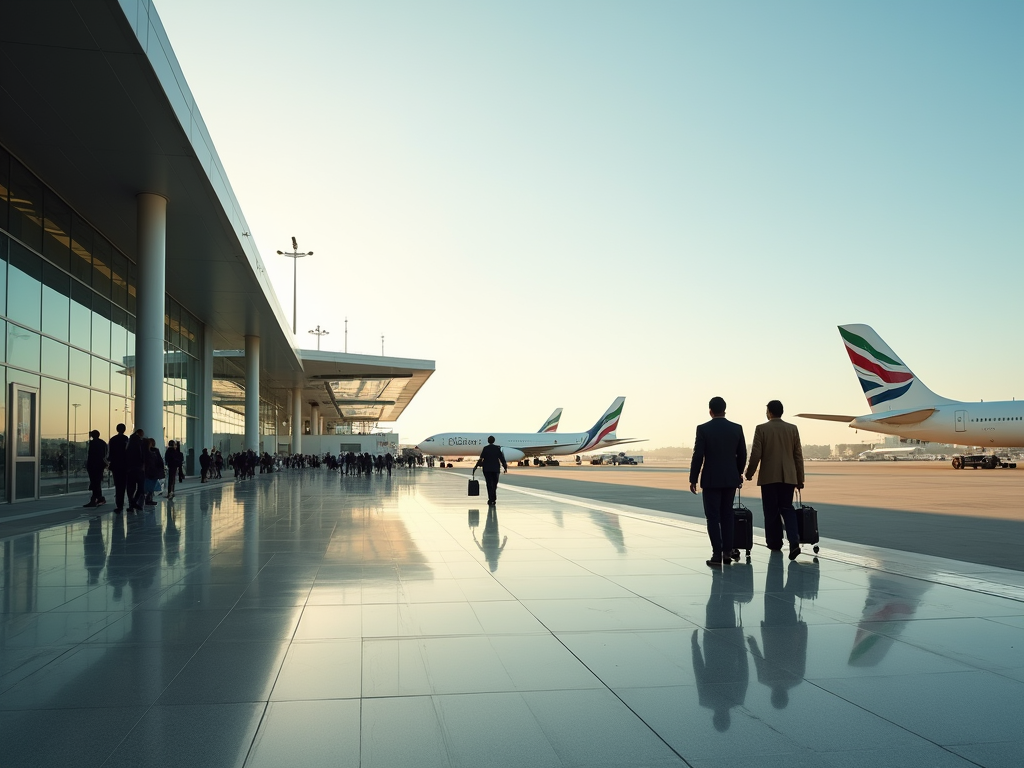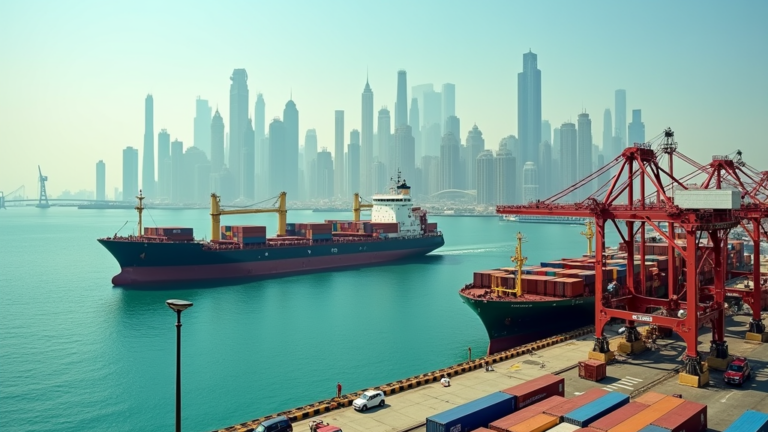Over the past few decades, Dubai has rapidly transformed itself into a leading global trade center. This city, known for its towering skyscrapers and luxurious lifestyle, has strategically positioned itself at the crossroads of Europe, Asia, and Africa. Factors such as significant investments in infrastructure, a business-friendly environment, and a diverse economy have contributed to this remarkable evolution. The result is a vibrant hub for international trade, drawing in businesses and investors from around the world. In this article, we delve into the various elements that have propelled Dubai to its prominent status in global trade.
Strategic Geographic Location

Dubai’s geographic location is one of its strongest assets, acting as a natural bridge between the east and west. Situated at the heart of the Middle East, Dubai benefits from proximity to emerging markets in Asia, Europe, and Africa. This position has made it a prime destination for shipping and logistics companies. Additionally, Dubai’s extensive coastline along the Arabian Gulf allows for easy access to global shipping routes. The city’s location promotes not only trade but also tourism and investment opportunities, attracting businesses aiming to capitalize on regional market access.
World-Class Infrastructure

To support its burgeoning trade activities, Dubai has invested heavily in world-class infrastructure. The city boasts one of the top-rated airports globally, Dubai International Airport, which serves as a vital hub for international air freight and passenger travel. Furthermore, the establishment of the Jebel Ali Port, the largest man-made harbor in the world, has significantly enhanced maritime trade capabilities. The seamless connectivity between air and sea routes enables rapid and efficient logistics services. In addition to transport infrastructure, the city has developed state-of-the-art facilities such as free zones, where businesses can enjoy tax exemptions and full ownership.
Economic Diversification Efforts
While traditionally reliant on oil revenues, Dubai has successfully diversified its economy to mitigate risks associated with fluctuations in oil prices. Today, the emirate thrives on sectors such as tourism, finance, and logistics, creating a balanced economic ecosystem. This diversification strategy encourages foreign investment and supports the growth of SMEs (Small and Medium Enterprises) in the region. Key sectors that have contributed to this diversification include:
- Tourism and hospitality
- Technology and innovation
- Real estate and construction
- Trade and logistics
- Financial services
This focus on diversification not only strengthens the economy but also helps create a more stable environment for trade and investment.
Business-Friendly Policies and Regulations
Another vital factor that has contributed to Dubai’s status as a global trade center is its progressive regulatory environment. The government has implemented various business-friendly policies aimed at attracting foreign direct investment (FDI). Initiatives such as 100% foreign ownership of companies in selected free zones streamline the setup process for international businesses. In addition, the ease of doing business is bolstered by minimal bureaucratic red tape, allowing for quicker approvals and transactions. Furthermore, the government offers incentives such as low taxes and customs duties, making Dubai an attractive destination for companies looking to expand their operations internationally.
Strong Focus on Innovation and Technology
Recognizing the importance of innovation in today’s trade landscape, Dubai has heavily invested in technology and digital transformation. The city aims to position itself as a smart city, utilizing AI, blockchain, and IoT technologies to enhance efficiency and competitiveness. Programs such as Dubai’s Smart City initiative focus on improving operational processes in trade and logistics. Additionally, the growth of e-commerce within the region has fostered new avenues for businesses to reach customers globally. By embracing innovation and technology, Dubai ensures its continued relevance in an ever-evolving global marketplace.
Conclusion
Dubai’s journey towards becoming a leading global trade center highlights the importance of strategic planning, investment in infrastructure, and adaptive policies. With its unique geographic location, world-class facilities, and commitment to business-friendly practices, the city has successfully created an environment conducive to trade and investment. As Dubai continues to evolve, its focus on innovation and diversification will likely propel its status even further, solidifying its position as a pivotal hub for international commerce.
Frequently Asked Questions
1. What geographic advantages does Dubai have for trade?
Dubai’s strategic location at the crossroads of Europe, Asia, and Africa makes it a prime hub for international trade. Its extensive coastline and access to major shipping routes further enhance its appeal for businesses looking to engage in global commerce.
2. How significant is Dubai’s infrastructure for trade?
Dubai has developed world-class infrastructure, including an internationally acclaimed airport and the largest man-made harbor in the world. This infrastructure facilitates seamless logistics and transportation, crucial for efficient trade operations.
3. What sectors are pivotal to Dubai’s diversified economy?
Key sectors in Dubai’s diversified economy include tourism, technology, real estate, financial services, and logistics. This diversification reduces dependence on oil revenues and fosters a stable economic environment.
4. How does the Dubai government support foreign businesses?
The Dubai government offers a range of support to foreign businesses, including low taxes, full ownership in selected free zones, and minimal bureaucratic processes. These policies attract foreign direct investment and enhance the ease of doing business.
5. What role does innovation play in Dubai’s trade strategy?
Innovation is central to Dubai’s trade strategy, with significant investments in technology and smart city initiatives. Embracing AI, blockchain, and digital solutions ensures that Dubai remains competitive in the global trade landscape.
